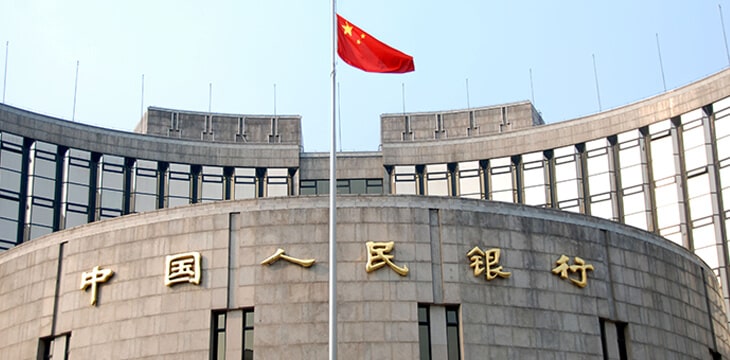|
Getting your Trinity Audio player ready...
|
News that the People’s Bank of China finally intends to ban all “virtual currency” related transactions crashed the digital asset markets today. Prices of popularly traded assets dumped between 9-25% after the central bank issued a statement saying it would declare any virtual currency-related trading activity illegal and ban transactions to exchanges based overseas.
Citing the need for greater investor protections, the PBoC’s statement said (machine-translated):
“In recent years, Bitcoin and other virtual currency transactions have become prevalent, disrupting the economic and financial order, breeding money laundering, illegal fund-raising, fraud, marketing and other illegal and criminal activities, seriously endangering the safety of people’s property.”
Despite the dramatic reaction from several news reports, the statement is more of a natural progression from the PBoC’s previous opinions on the topic. What it means for the local BSV industry, particularly the sector based around software development and contracts, remains to be clarified.
Though today’s price crashes were significant, they were less so than on previous similar occasions. China’s digital asset industry, which was once one of the world’s largest, has been largely sidelined over the years as restrictions became more severe. Much of the local activity has already moved overseas or stopped completely.
“China’s regulatory policy on virtual currency is clear and consistent”, the PBoC’s statement read. While China has encouraged non-financial blockchain technology development (if such a thing could actually exist in reality), it has never made a secret of its dislike for the financial side of the industry.
The writing has been on the wall for China’s digital asset industry for many years. As far back as 2013, Beijing announced its intention to restrict Bitcoin and other digital asset use, discouraging local banks from engaging in transactions to and from trading exchanges.
So frequent were the discouragements over the years since that “China bans Bitcoin” became a meme in the industry. Reporters and commentators fretted over translations and attempts to understand the country’s approach to regulation, which seemed opaque compared to the (relatively) more clear-stated Western world.
Was the government serious, or was it just trying to scare the market? Did formal/informal letters of intent or discouragement from certain activities actually constitute a new rule, or were they just warnings that individual companies could choose to follow or not depending on their appetite for future risk?
Either way, Chinese exchanges continued to operate and make profits for several years, even amid semi-regular warnings from the People’s Bank that “virtual currencies” were not legal tender in any way.
Though China-based exchanges and consumer payments in digital assets were eventually banned, miners continued to operate and flourish for years. It was an open secret that anyone in China could access a foreign-based exchange using a VPN.
Things ramped up in 2017 with a sudden ban on all ICO/token offer investments. Then in early 2021, China banned all digital asset mining activity in several provinces where it had become popular. Should the PBoC follow through on its latest statement of intent (and it likely will) it could make China a completely digital-asset-free zone.
Justified this time?
In past years, China’s main reason for restricting the use of digital assets—investor protection—have been met with incredulity. Many in the blockchain industry regarded it as an excuse to eliminate any local competition to the yuan and investment markets over which local regulators could maintain a degree of control. It was what all governments everywhere would do if they could, the cynics said, because Bitcoin and blockchain represent a new, freer kind of economy.
But the truth is, the “new, freer economy” blockchain promised has also birthed its share of scams and crashes that lost fortune-seekers millions, individually and collectively. BTC’s main legacy after 12 years is not a new global economy, but a multibillion-dollar casino where most transactions are to and from exchanges. Digital assets are notoriously volatile, making mainstream headlines mostly when a large price bubble forms and then again when it bursts. Each time, thousands of naive newcomers who bought in near the top of the market lose their shirts.
Though developers and enthusiasts aren’t necessarily to blame for the behavior of scammers and swindlers, they often create the atmosphere that enables them, hyping massive price gains with gusto and creating popular memes based on their quick riches including laser eyes, Lambos and moon rockets. (Old-timers remember more liberty-based memes like the Honey Badger and digs at Western Union.)
Many will probably still question the People’s Bank’s motives after this latest announcement. But in 2021, it’s easier to forgive the Chinese authorities for wanting to step in and protect the public from bad investments a little more. Already facing public anger over bad mainstream investments like Evergrande, they’ve decided that other potentially risky investments should go as well. BTC and other digital assets have occasionally been “lucky investments,” but they’ve never been “good investments.” And until the industry pivots away from permanent speculation-mania and towards building real value, regulators in China and other countries will continue to see mainly the negative side.
Watch: CoinGeek Zurich panel, BSV Blockchain & China

 02-20-2026
02-20-2026 




